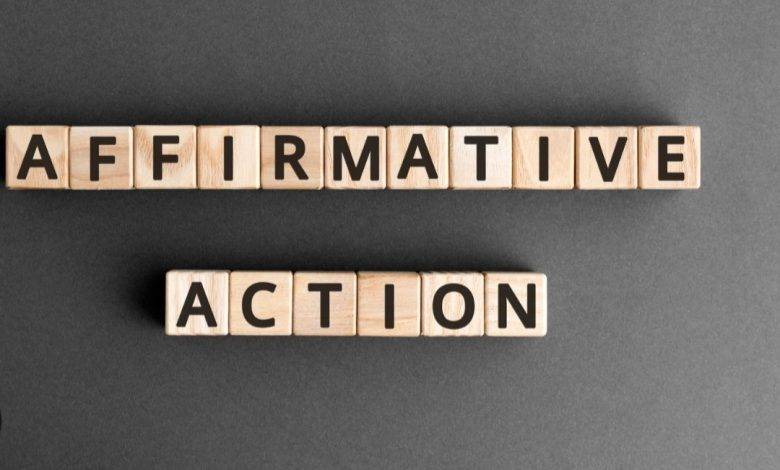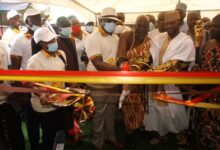
The call for the passage of the Affirmative Action Bill (AAB) into law continues each year, due to the enormous benefit this would have on the development of the country. High number of females in parliament has been proven to enrich decision making processes and ensure a more inclusive representation of the people. It also promotes gender equity leading to the introduction of policies that tackle the needs of both men and women, contributing to a balanced and effective governance.
This all-important legislation is a measure that seeks to promote women’s participation and representation in decision making spaces to encourage good and satisfactory governance.
A government that is accountable to its citizens is better positioned to deliver essential services efficiently in areas such as healthcare, public safety, and education among others, contributing to an improved quality of life of the population.
Good governance also builds trust in the government because when citizens know that their leaders are transparent and answerable for their actions, it promotes confidence in the political system. Effective governance is also essential for economic and political stability. A government that is accountable to its citizens upholds democratic principles, ensuring that decision-making is inclusive, participatory, and reflective of the diverse needs and opinions within the society.
According to the population census 2021 women form more than 50 per cent of Ghana’s total population and have consistently remained the majority in the country. However, despite this majority, women remain under-represented in governance processes of the country which the Institute of Democratic Governance (IDEG) and other individuals and organisations have expressed dissatisfaction about on many occasions.
Before the end of last year, the Ministry of Gender Children and Social Protection (MoGCP) announced that the AAB had received approval from Cabinet.
The sector minister, Lariba Zuweira Abudu said the Bill had been submitted to parliament for consideration under a certificate of urgency.
“Other critical Bills and Policies were also submitted to Cabinet for consideration and approval,” she added.
Madam Abudu said the ministry stands for an inclusive society that ensures all citizens have equal opportunity to participate in nation building.
She also noted that the ministry had undertaken vigorous awareness campaigns on Child Rights Promotion, Social Protection, Child Marriage, Human Trafficking, Domestic Violence among others at national, regional, district and community levels.
The National Council on Women and Development (NCWD), which was Ghana’s first national machinery for women, defined Affirmative Action in the 1970s as special measures which are taken to correct the structural discrimination and collective disadvantages which women suffer as a group. The African Union’s (AU) Protocol on Women’s Rights (2004) also requires member states like Ghana to take specific positive actions to promote participative governance, and the equal participation of women in the political life of their countries through affirmative action. More needs to be done to ensure the passage of the AAB into law. Ghanaian women are willing to take up all opportunities that will be made available to them, to help in good decision-making processes that will result in the rapid development of the country. There should be no obstacles.
The AAB Coalition believes the Affirmative Action law is the only guaranteed way to achieve gender parity and ensure women’s effective representation in key decision-making spaces.
According to the group it is important for political parties to make women representation paramount in their spaces to ensure that women are equally represented to actively champion the passage of the bill.
Women’s representation in all policy making spaces in Ghana now stands below the United Nations (UN) threshold of 30 per cent. Currently, women’s representation in the parliament stands at 14.5 per cent. The situation is no different in government’s ministerial, ambassadorial and board appointments.
Various studies have revealed that gender-diverse legislatures are associated with improved governance, increased responsiveness to constituents, and low levels of corruption. The enhancement of female representation can therefore also contribute to a more effective and accountable governance.
Currently Rwanda has 65.25 per cent of female representation in parliament, Cuba has 53.22 per cent, Bolvia has 53.08 per cent and New Zealand has 50.42 per cent. Complete democracy requires the active involvement of women in all its processes. We can learn some lessons from these countries.
According to the Inter-Parliamentary Union (IPU), an international body that has been reporting on women in parliament, as of March 2022 only 26.1 per cent of all national parliamentarians globally were women which still represents a low increase compared to the UN benchmarks set at 30 per cent female representation in decision-making positions.
Women and girls, everywhere, must have equal rights and opportunity, and be able to live free of violence and discrimination. Women’s equality and empowerment is one of the 17 Sustainable Development Goals and remains integral to all dimensions of inclusive and sustainable development.
The challenges facing women are enormous and requires that all stakeholders get on board to change the narrative for the better, as efforts are being made towards achieving the agenda 2030.
Reflecting on Ghana’s democratic journey at the just ended 75th Annual New Year School and Conference (ANYSC), Executive Director of IDEG, Dr Emmanuel O. Akwetey stated that as Ghana marked the 31st anniversary of its constitution, the government must reflect and act on the critical gaps that have led to the marginalisation of vital segments of the society especially women.
Demanding for the passage of AAB into law as a matter of urgency is everyone’s responsibility, every member must be interested in joining the good cause of calling on the government to do the needful before the end of 2024.
Women can ensure good governance, give them the opportunity.
Pass the AAB into law now!
BY RAISSA SAMBOU







